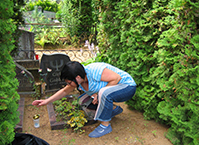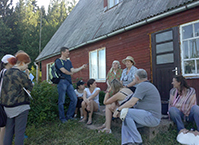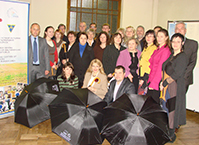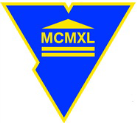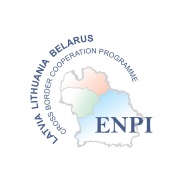Tell me, please, where you live and if the traditions of cemetery festivals (kapusvētki) are widespread in the area?
Categories: Liga Seikste-Deksne
At present, the traditions may be said to be gradually disappearing. But I live in Litene civil parish of Gulbene region, it is kind of a borderland of Latgale, but the traditions typical of Vidzeme are rather manifest here. What does it mean? It means that the cemeteries are attached to the civil parishes and they are not distinguished according the religious denominations. Thus, the inhabitants of one parish are buried in one cemetery irrespective of their religious belonging, whoever they are. They all are buried in one cemetery. These cemetery festivals actually are not only the commemoration of the dead, it is rather a kind of meeting for the living ones, there are a lot of fine nuances that maybe are not obvious in direct contact and in people’s conversations, but they are very significant.
For example, especially in the 70ies – 80ties, when various possibilities to decorate one’s relatives’ graves were rather scarce, people still tried to particularly mark it as a flower bed, to show the best, bring the most beautiful flowers, arrange them in a more interesting way. And the village elderly women, who usually like talking to each other and gossiping, the day before the commemorative cemetery rituals they walked around all the cemetery to find out what grew in which house and where from and whom they could ask and get some plants for their own gardens. The very cemetery festivals usually implied a little concert, I’d say, of church music at the parking lot and a really short speech addressed to all people present, but in that parking lot there, I might even say, rather great celebration usually took place. There were auto-shops, snack bars; men met each other, discussed their daily work, social and family affairs. Of course, all that was connected with consuming quite a lot of alcohol and sometimes, the weather permitting, at those snack bars there began spontaneous almost parties – with dancing and singing. As to the themes of those conversations – most of them were beautiful memories, when people met each other and remembered – yes, this man has passed away, and that one also is gone, but remember how we together did this and that, and how we brought motor cars for the first time, and how we were ploughing the field. That was such an event that united all the villagers. And maybe some more remote neighbours, who couldn’t meet each other every day because of their work, for them those cemetery festivals were almost the only holiday a year when they could meet all the villagers, since every villager has some close or distant relative buried in that cemetery.
Audio
Researcher: Dr. philol. Valentīns Lukaševičs, Daugavpils Universitāte


